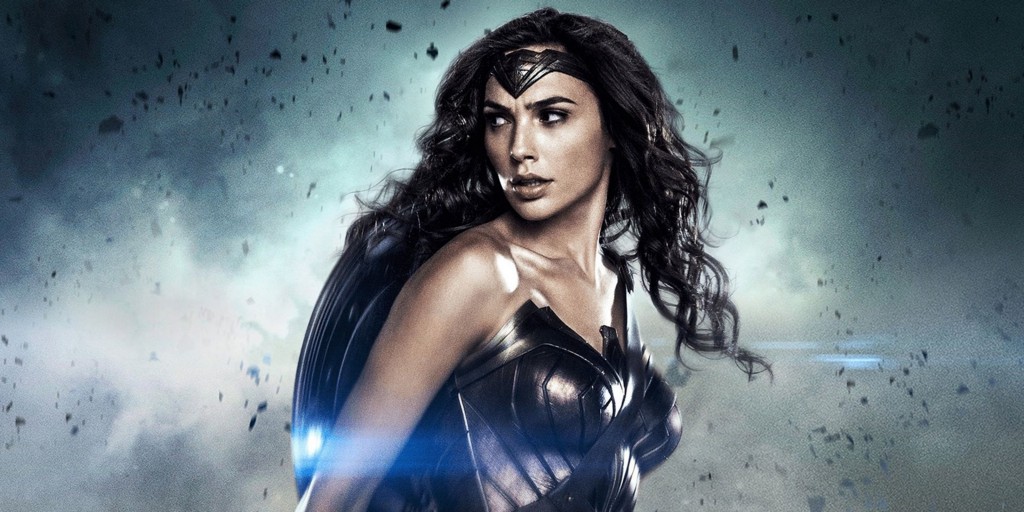Dear FSR
How To Make The Perfect Movie Heroine
Leading ladies don’t have to be superheroes.


At some point in your life, you’ve likely been faced with a question that has no solid answer. Some people may take such a puzzle to a trusted confidant, a friendly pastor, or the esteemed annals of Yahoo! Answers. But will they have the expertise needed to solve your most pressing film predicaments?
Think of Dear FSR as an impartial arbiter for all your film concerns. Boyfriend texting while you’re trying to show him your most precious Ozu? What’s the best way to confront the guy who snuck that pungent curry into your cramped theater? This is an advice column for film fans, by a film fan.
Dear FSR,
What do you think it takes to create the perfect movie heroine nowadays? What are the ideas behind this character? What characters do you consider to be close to the perfect heroine?
From,
Frank Female Fan
Dear FFF,
I think it’ll be easier (and less problematic) if we narrow the scope of this question down to looking at some of my favorite female protagonists within the context of the two high-profile female-led-and-directed superhero films coming down the pipeline: Wonder Woman and Captain Marvel.
There’s no perfect formula to make a main character, despite what Save the Cat and various screenwriting gurus/hucksters will tell you. You can make them super likeable, you can make them completely unlikeable, you can tread carefully in between, but at the end of the day, we want a character that might not reflect all of our values, but whose efforts are geared towards something we deem worthwhile. Leslie Knope, the ultra-charming star of Parks and Recreation played by Amy Poehler, has a brute force optimism that pushes her co-workers to go the extra mile and political ambition that comes from love. She is defined by her relationships with others, like most good characters.
Unlike novels, TV and film heroes/heroines can’t exist in a bubble. We simply don’t have the omniscient luxury of knowing what’s in their head otherwise. Veep’s foul-mouthed Selina Meyer (Julia Louis-Dreyfus) wouldn’t be nearly as effective if we had a running inner monologue the entire time. Instead we watch her struggles, outbursts, and small victories through the Rosetta Stone of her team. She relies on them all in different ways, which doesn’t necessarily make her a stronger or more likeable character, but a more relatable one that whose many facets we come to understand.
When it comes to movies, there’s a well-documented lack of female writers and directors (like TV but much worse) to bring these female characters to life and an anti-female prejudice from producers about what audiences will pay to see. Staying away from too deep a dive, there’s a lot of sexism masquerading as risk aversion in the economics of Hollywood, and this manifests in what films Hollywood deems fit for female leads and how those characters actually act.
Women were (and are) far more likely to lead smaller indie dramas or horror films. If an action movie had a woman in it, she’d be a femme fatale villain or a ditzy love interest – something parodied well in Kingsman: The Secret Service. If somehow she was the lead, they’d be hypersexualized like Lara Croft, Catwoman, and the girls of Suckerpunch. So obviously we’d like to stay away from that, which can be most easily avoided by hiring female production talent.
A promising development in this area is with superheroes. The new trailer for Wonder Woman has her kicking ass with her trademark equipment and shutting down an uppity love interest. As long as this inequity exists, it will need to be addressed on some level by the heroine. As long as men want to tell women what to do, they’ll need heroines to say “what I do is not up to you”.
While feminism alone doesn’t make a heroine a great character, it certainly helps. Imbuing a character with a heartfelt political belief that makes sense in context of her history and desires adds a lot of nuances without saying it all. If you can place a character in a variety of particular hypothetical situations and know how she will act, that’s a well-written character. But it’s not all just about ass-kicking, which we see with the other female-led superhero movie coming soon, Captain Marvel.
Captain Marvel, starring Brie Larson, has a swaggering part-alien fighter pilot as its lead. Sure she’ll kick ass, but Carol Danvers (the alter-ego behind the current mantle of Captain Marvel) is a commander and a diplomat. She works with both the Avengers and Guardians of the Galaxy, likely bringing aspects of them together in the near cinematic future. After Room and Short Term 12, Larson’s persuasive abilities are unquestionable.
It helps that both leads she played were complex heroines whose inner damages bring out their strengths and weaknesses to the audience. Selfishness, fear, and anxious feelings of inadequacy are qualities rarely found in our heroines, let alone in our superheroines. These have been explored in the Captain Marvel comics (specifically in the limited series House of M when Danvers was still Ms. Marvel), but I hope they make it to the big screen. These aren’t just humanizing feelings, they’re unique feelings. They’re feelings people can relate to broadly or specifically. If our heroines can have both – realistic (not necessarily all positive) emotions without cookiecutter qualities – they’ll join the echelons of great characters.
We’ve got nowhere to go but up,
FSR
Do you have a question for FSR? Tweet us with the hashtag #DearFSR, ask in the comments, use our member’s only chat, or e-mail us at hello@filmschoolrejects.com.
We’ll be back answering your questions every Tuesday!
Related Topics: Feminism, Kingsman, Women
